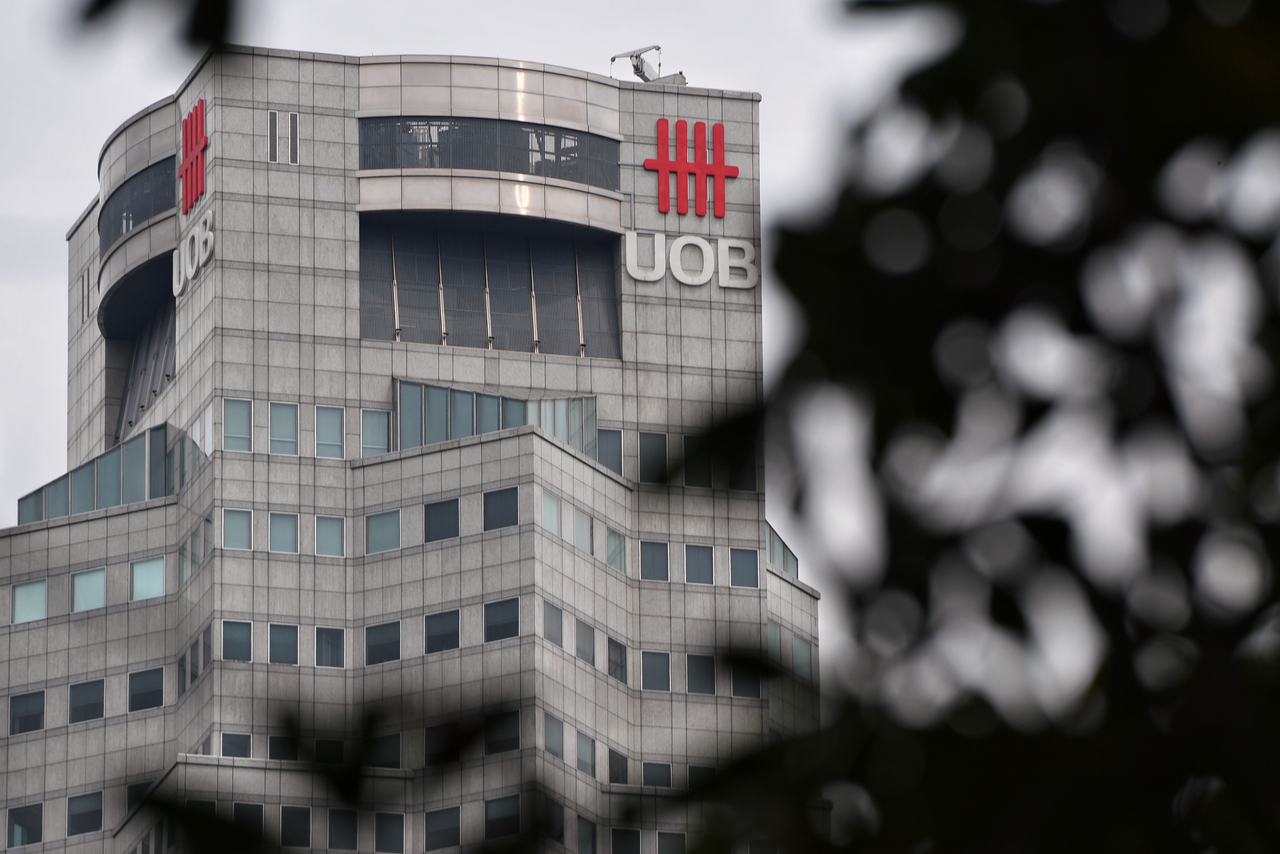UOB says credit costs to ease 'significantly' as Q4 profit falls 32% to $688m
Sign up now: Get ST's newsletters delivered to your inbox

UOB said on Thursday (Feb 25) that October-December net profit slumped to $688 million from a year earlier.
ST PHOTO: KUA CHEE SIONG
SINGAPORE - Singapore’s third-largest bank UOB reported on Thursday (Feb 25) a 32 per cent plunge in fourth-quarter earnings as it set aside more allowances for bad loans, but like its peers was fairly optimistic about this year's outlook.
Chief executive Wee Ee Cheong said that the pace and strength of economic recovery from the Covid-19 pandemic will be uneven across sectors although vaccines are now available.
But he was upbeat on growth in loans and wealth management fees, as well as lower credit costs.
"Some credit migration is inevitable, but we have made sufficient provisioning and expect to stay profitable and resilient," Mr Wee said in a media briefing on Thursday.
UOB posted a fourth-quarter net profit of $688 million, down from $1 billion a year ago, due to lower net interest income and higher allowances set aside for non-impaired assets.
Its earnings were nonetheless ahead of the $652 million average estimate of six analysts polled by Bloomberg.
The bank’s results wrapped up the earnings season of local lenders, after larger peers DBS and OCBC also saw earnings decline from a year ago.
UOB declared a final dividend of 39 cents a share, down from 55 cents a year ago, to which the scrip dividend scheme will be applied.
Together with the interim dividend of 39 cents, the total dividend for the full year will be 78 cents per share, representing a payout ratio of about 45 per cent. This is in line with the Monetary Authority of Singapore’s guidance for local banks to cap dividends for the 2020 financial year.
Mr Wee said the bank will resume its 50 per cent dividend payout once regulatory caps are lifted.
Annualised earnings per share for the quarter stood at $1.59, down from $2.35 a year ago.
Net interest income slid 8 per cent to $1.51 billion on lower interest rates. Its net interest margin (NIM), a key gauge of profitability for banks, fell 19 basis points to 1.57 per cent.
Mr Lee Wai Fai, the bank’s chief financial officer, expects NIM to stabilise at the current level, with interest rates likely to stay low this year.
Credit costs are expected to ease significantly as the bank has set aside sufficient funds to cushion the possibility of new non-performing assets (NPA) forming this year, he added.
The bank estimates new NPA for the year to be $2 billion or 0.7 per cent of UOB’s portfolio. NPA made up $4.6 billion in the fourth quarter, up from $4.3 billion the previous quarter. The pickup was due to “a few secured, weak customers” identified through the bank’s restructuring taskforce, said UOB.
Its non-performing loans ratio was 1.6 per cent as at Dec 31, up from 1.5 per cent a year ago.
As for debt holidays, loans under government relief programmes fell from $11 billion in December to $3 billion last month as moratoriums across the group’s markets ended. As at Jan, these loans made up 1 per cent of the bank’s total loans. Most of these comprise loans that have resumed repayment, rather than loans that have turned bad, said Mr Lee.
The bank’s net profit for the full year shrank 33 per cent to $2.91 billion as economies contracted amid the global pandemic with lower margins from benchmark rate cuts and reduced customer activity.
Net fee and commission income fell 2 per cent to $2 billion as consumers spent less on credit cards and there was lower business activity due to travel restrictions. However, wealth and fund management fees improved.
Mr Wee said the bank will rebalance its business to focus on wealth management services. In Singapore, the bank will expand its range of wealth management products and services in its UOB Mighty mobile banking app, added Mr Lee.
UOB shares were up 3.22 per cent to $24.65 on Thursday. DBS gained 1.89 per cent to $26.90, while OCBC rose 2.03 per cent to $11.07.
Experts said banks are likely to see better performance this year amid economic green shoots but some uncertainty remains.
CIMB Private Banking economist Song Seng Wun said there will be higher lending activity if business confidence continues to recover.
Property loans, stock market activity and wealth management services are bright spots for lenders now, he added.
Associate Professor Lawrence Loh from the National University of Singapore Business School noted that banks’ net profits have fallen for a few consecutive quarters: “While being optimistic, we are still in a sensitive phase and there is some uncertainty over whether this has bottomed out.
“Banks are critical nodes in the entire business ecosystem. In other words, what they are going through is a reflection of the broader economy.”


